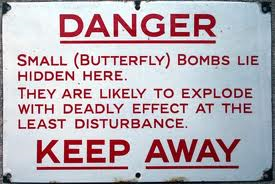Monkeys with tea: what writers really need
There’s been a lot of debate in the past couple of weeks about the usefulness of creative writing MAs, after author and MA tutor Hanif Kureishi’s claim that they are a waste of time (asked whether he’d have enrolled on one, he bracingly replied: ‘that would be madness’). The Grauniad on Saturday ran a three-page spread in which creative writing tutors laid out their own teaching methods, and in the latest MsLexia there’s a piece* about what happens post-MA (conclusion: you get over the anti-climax and keep on writing. A few more of you get published than would have before you did the course).
I’ve got no dog in this fight; I’ve never done a Creative Writing MA and – so far – not taught on one. But some of our best novelists got their start on a Masters course, and I like the sound of Philip Hensher’s Top Tips (who doesn’t need a brace of those?), and of Naomi Alderman’s bespoke advice about writing routines. I appreciate Toby Litt’s recognition that what an MA principally offers is permission to write. Not sure I’d want Jeanette Winterson to explode language in my face; maybe that’s just me.
There are less enticing aspects to the creative writing industry: I’ve spoken with numerous graduates who’ve said the only thing they’d gained was a chance to meet agents as well as – ominously – a senior editor who admitted being wary of work from MA students (‘Their writing has started to sound all the same’, he told me). And there’s that weird bias towards literary fiction, be it explicit (as in Kent University’s recent, quickly-recanted statement) or implicit, as in … well, as in the assumptions held by every single one of the Creative Writing tutors quoted in The Guardian.
I’m interested in what’s happening there, in the sheep-and-goats division of genres (‘Not everyone uses fiction to ask important questions,’ says Scarlett Thomas, Kent University tutor, in her MA-in-one-volume Monkeys With Typewriters. ‘But you should. There are already enough Mills & Boon books; and life is short, after all.’) Are MA courses not vocational, then? Are they not an attempt to help writers – of all genres – hone their craft and get published? Is commercial fiction so very easy to produce that it scarcely merits teaching, or is something else at work? There has long been snobbery about cultural products enjoyed by the ‘wrong’ class or the ‘wrong’ gender, and I do wonder whether some of that obtains here.
So, what do emerging authors need? They need the permission that Toby Litt so astutely recognises. They need to keep writing. They need Top Tips, loads of them (you can’t teach prose to someone with a tin ear, but you can teach almost every other aspect of the craft).
They need to keep writing. They need to know that it’s hard – really and properly, despair-inducingly, fuck-this-for-a-lark hard to write a publishable book, that failure is normal, that it may be hard, not because they’re bad at it but because that’s the nature of the job, that it’s hard for all the other students and all the published writers they most admire, that they should crack on anyway; tea and cake may, as it turns out, be essential teaching tools.
They need to keep writing. They need to read for all they’re worth, all the time and for ever. They need to understand how creativity functions, so that they don’t panic when they’re not at their desk. They need to keep writing. They need to know how to submit a manuscript, how to pitch. They need to meet agents. They need to keep writing. They need to get over themselves and out of their own way. They need to keep writing.
*I can’t link to this as it’s in the magazine. But you should subscribe anyway; it’s brilliant.


